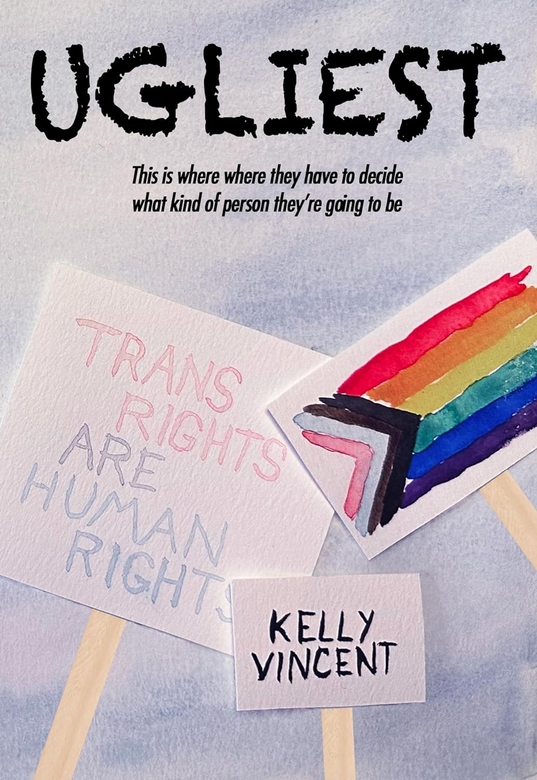
Following the powerful YA novels Ugly and Uglier, author Kelly Vincent takes readers on a profound journey through the tumultuous life of seventeen-year-old Nic Summers in Oklahoma City in Ugliest, the final chapter of The Art of Being Ugly series. In this inspiring, empowering, and emotional novel, Vincent intricately weaves themes of identity, resilience, and social justice into the strongest installment of the series.
Continuing to delve into the intricacies of self-acceptance and societal perception, this installment builds on the strong foundations laid by its predecessors. Where Ugly introduced readers to the harsh realities of self-image and Uglier further explored the deepening complexities of Nic’s emotional struggles, the third book elevates the narrative by integrating broader social issues and more mature themes, marking a significant evolution in the series, which also demonstrates Vincent’s growing skill as a writer.
Nic is still deep in their education in Oklahoma City, balancing their physics studies with their interest in art. When they try to fight the powers that be against damaging legislation, the activism goes viral, expanding on the issues brought forward in Uglier, but now put into more direct action. Balancing Nic’s personal story with the larger themes of activism, resistance, and the impact of social media, this installment has a timely sense of urgency, in which the story feels like a form of activism in itself.
Within this arc, Nic’s ongoing conflict with Dr. Jones and the anticipation of the art club meeting with Rachel provide immediate tension, while Nic’s academic struggles and plans to seek help from Tiana add layers to their personal journey. The early morning physics class sets a tone of lethargy and challenge, mirroring Nic’s internal state, and Dr. Jones’ classroom becomes a battleground of ideas. Rachel’s attitude, meanwhile, expresses broader societal attitudes in the South, a place where religious fundamentalism is at odds with empathy and open-mindedness, with the novel critiquing the hypocrisy of those who claim moral superiority yet practice intolerance.
As ever, Nic’s voice is authentic and relatable, even if the reader doesn’t necessarily have to face some of these issues on a personal level. Vincent’s stream-of-consciousness prose effectively conveys Nic’s conflicting thoughts and emotions, making their eventual triumphs feel viscerally immediate, no matter one’s own experiences. Nic’s determination to succeed in physics and their deepening involvement in activism highlight their drive and resilience, which is both harrowing and inspiring. This is enhanced by the secondary characters, where Jacob, Mack, and Jenna reveal more about Nic’s inner life, especially through dialogue, and their support network is a beacon of hope and solidarity.
With the focus so much on one side of the battle, more attention could have been given to Dr. Jones’ motivations to heighten her role as antagonist. That minor issue aside, this third book in The Art of Being Ugly series skillfully builds on themes and character arcs in the first two installments, offering a more nuanced exploration of identity and self-worth, and raising the stakes considerably. An important work of YA fiction, Vincent’s evolving storyline and mature thematic focus make Ugliest a profound work of LGBT literature.
Book Links
STAR RATING
Design
Content
Editing
Get an Editorial Review | Get Amazon Sales & Reviews | Get Edited | Get Beta Readers | Enter the SPR Book Awards | Other Marketing Services























Leave A Comment